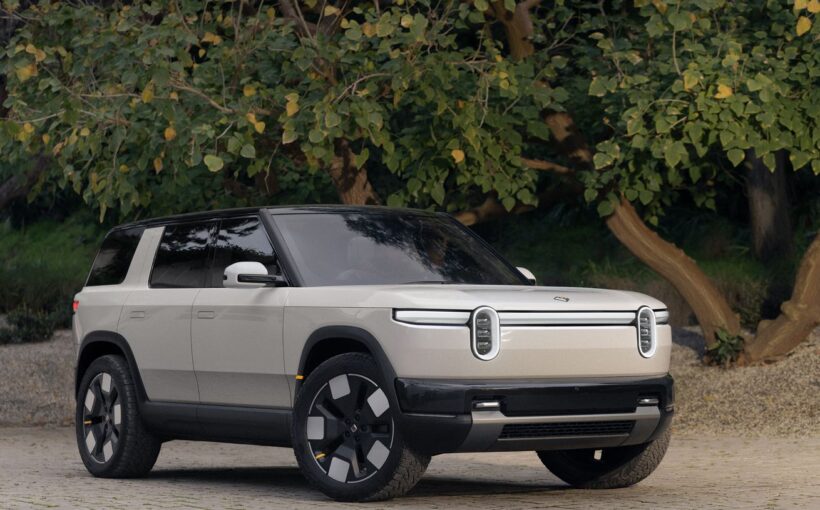
Rivian’s R2 vehicles will be powered by batteries made domestically in the US by South Korea’s LG Energy Solution, the company announced in its third quarter earnings report.
Rivian first revealed the new batteries back in March when it announced the R2 as its more affordable electric SUV that would start at $45,000. (It also announced the sportier R3 vehicle.) The cell is called “4695” due to its diameter of 46 millimeters and height of 95 millimeters — larger than Tesla’s 4680 cells.
The battery packs that Rivian currently uses in its R1T and R1S vehicles are assembled at its Normal, Illinois, factory using cells manufactured in South Korea by Samsung SDI. Now, the cells will be produced in the US to better comply with tax credit requirements outlined by the Inflation Reduction Act. In a letter to shareholders, Rivian said the cells would be manufactured during their first year at LG’s plant in Queen Creek, Arizona.
:format(webp)/cdn.vox-cdn.com/uploads/chorus_asset/file/25720327/Screenshot_2024_11_07_at_4.47.56_PM.png)
The next-gen battery pack will be lighter, less complex, and cheaper to produce than the current batteries, Rivian said. The company also expects a “meaningful reduction in dollar per kilowatt hour (kWh) at the pack level when compared to the R1 platform.” And because it’s larger than its R1 batteries, the new packs will contain fewer cells overall, which will make the manufacturing process more efficient. Rivian says it expects the assembly process to improve by 45 percent.
Since the passage of the Inflation Reduction Act, automakers have been scrambling to shift EV battery manufacturing to the US to comply with rules requiring domestic production in order to qualify for generous subsidies. And with President-elect Donald Trump coming back into office, they will need to work even faster in order to avoid harsh tariffs on imported goods that the incoming president has promised to enact.
LG Energy Solution makes EV batteries for a number of legacy automakers, too. The company’s joint venture with General Motors received a $2.5 billion loan from the Department of Energy in 2022 to help construct a new lithium-ion battery manufacturing facility.
Rivian has said the R2 will go into production during the first half of 2026. But with Trump also promising to eliminate President Joe Biden’s EV subsidies, the question remains whether struggling EV-only companies like Rivian will be able to stay afloat amid what’s expected to be a more uncertain market.



